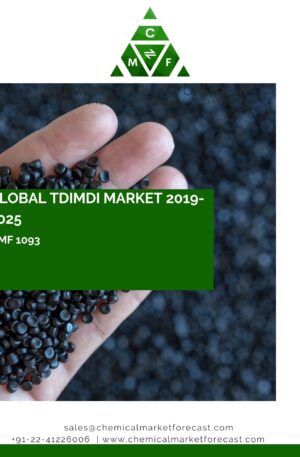Global Industrial Insulation Market Report
The industrial insulation market refers to the market for insulation materials and products used in various industrial applications. These materials are used to reduce heat loss, improve energy efficiency, and enhance fire resistance in various industrial settings. The industrial insulation market is segmented based on product type, application, and region.
The industrial insulation market is expected to grow due to increasing demand for energy-efficient industrial processes, stringent regulations for energy conservation, and increasing focus on reducing greenhouse gas emissions. The Asia-Pacific region is expected to see significant growth in the industrial insulation market due to increasing demand from countries such as China and India.
Industrial insulation materials can be used in a variety of applications, including pipelines, boilers, tanks, and other equipment. The main types of industrial insulation materials include fiberglass, rock wool, polyurethane foam, and others. Industrial insulation helps to improve the energy efficiency of industrial processes, reduce greenhouse gas emissions, and reduce operational costs. It also enhances fire safety by slowing the spread of fire and reducing heat transfer. Proper installation of industrial insulation is important to ensure its effectiveness. Factors such as temperature, air flow, and moisture can affect the performance of industrial insulation over time, and regular inspection and maintenance is necessary to ensure that it continues to provide the desired level of insulation. The use of industrial insulation is regulated by government agencies and industry organizations, and industry standards for insulation materials and installation practices are established to ensure safety and efficiency. If you look through the options, you will discover a diverse range of industrial insulation products. Each material is high-quality and designed to withstand a variety of temperatures. The range is quite extensive, ranging from strong and mechanically resistant stone wool to flexible and lightweight glass wool or modern highly compressible mineral wool.
The following are some of the compelling reasons to insulate industrial piping systems. Fiberglass and mineral wool insulation systems lower the surface temperature of piping and equipment, lowering the risk of burns and reducing worker downtime due to injury. Fiberglass and mineral wool insulation help maintain process temperature to your predetermined value by reducing heat loss or gain. Properly specified insulation thickness can limit heat loss in a dynamic system or temperature drop over time in a static system. The most effective way of controlling condensation and limiting corrosion on cold piping, ducts, chillers, and roof drains is to specify adequate insulation thickness with the appropriate vapour retarder. A sufficient thickness is required to keep the temperature of the outermost surface above the dew point temperature of the ambient air.
Key players in the industrial insulation market include Owens Corning, Saint-Gobain, Kingspan Group, Cabot Corporation, Johns Manville, Huntsman Corporation, and Armacell International S.A.
Industrial insulation is used globally in various regions, The United States and Canada are major markets for industrial insulation, driven by the presence of a large number of industrial facilities and strict energy conservation regulations. Europe is a significant market for industrial insulation, driven by the presence of mature industries and increasing focus on energy efficiency and sustainability.
Table of Contents
Global Industrial Insulation Market Report
1 Market Introduction of Global Industrial Insulation Market Report
2 Market Segmentation of Industrial Insulation Market Report
2.1 Industrial Insulation Market Segmentation By Region
2.2 Industrial Insulation Market Segmentation By Type
2.3 Industrial Insulation Market Segmentation By Crop Type
3 Cost Structure of Industrial Insulation Market Report
4 Country Analysis of Industrial Insulation Market Report
4.1 China
4.1.1 Industrial Insulation Market Forecast & Size in China
4.1.2 Industrial Insulation Market Trends & Analysis in China
4.1.3 Key Industrial Insulation companies in China
4.1.4 Regulatory Framework of Industrial Insulation Market in China
4.2 Germany
4.2.1 Industrial Insulation Market Size in Germany
4.2.2 Industrial Insulation Market Trends & Analysis in Germany
4.2.3 Key Industrial Insulation companies in Germany
4.2.4 Regulatory Framework of Industrial Insulation Market in Germany
4.3 France
4.3.1 Industrial Insulation Market Size in France
4.3.2 Industrial Insulation Market Trends & Analysis in France
4.3.3 Key Industrial Insulation companies in France
4.3.4 Regulatory Framework of Industrial Insulation Market in France
4.4 Italy
4.4.1 Industrial Insulation Market Size in Italy
4.4.2 Industrial Insulation Market Trends & Analysis in Italy
4.4.3 Key Industrial Insulation companies in Italy
4.4.4 Regulatory Framework of Biocides Market in Italy
4.5 Netherland
4.5.1 Industrial Insulation Market Size in Netherland
4.5.2 Industrial Insulation Market Trends & Analysis in Netherland
4.5.3 Key Industrial Insulation companies in Netherland
4.5.4 Regulatory Framework of Industrial Insulation Market in Netherland
4.6 Russia
4.6.1 Industrial Insulation Market Size in Russia
4.6.2 Industrial Insulation Market Trends & Analysis in Russia
4.6.3 Key Industrial Insulation companies in Russia
4.6.4 Regulatory Framework of Industrial Insulation Market in Russia
4.7 Canada
4.7.1 Industrial Insulation Market Size in Canada
4.7.2 Industrial Insulation Market Trends & Analysis in Canada
4.7.3 Key Industrial Insulation companies in Canada
4.7.4 Regulatory Framework of Industrial Insulation Market in Canada
4.8 Mexico
4.8.1 Industrial Insulation Market Size in Mexico
4.8.2 Industrial Insulation Market Trends & Analysis in Mexico
4.8.3 Key Industrial Insulation companies in Mexico
4.8.4 Regulatory Framework of Industrial Insulation Market in Mexico
4.9 Singapore
4.9.1 Industrial Insulation Market Size in Singapore
4.9.2 Industrial Insulation Market Trends & Analysis in Singapore
4.9.3 Key Industrial Insulation companies in Singapore
4.9.4 Regulatory Framework of Industrial Insulation Market in Singapore
4.10 United Kingdom
4.10.1 Industrial Insulation Market Size in United Kingdom
4.10.2 Industrial Insulation Market Trends & Analysis in United Kingdom
4.10.3 Key Industrial Insulation companies in United Kingdom
4.10.4 Regulatory Framework of Industrial Insulation Market in United Kingdom
4.11 Switzerland
4.11.1 Market Size in Switzerland
4.11.2 Market Trends & Analysis in Switzerland
4.11.3 Key Industrial Insulation companies in Switzerland
4.11.4 Regulatory Framework of Industrial Insulation Market in Switzerland
4.12 Brazil
4.12.1 Market Size in Brazil
4.12.2 Market Trends & Analysis in Brazil
4.12.3 Key Industrial Insulation companies in Brazil
4.12.4 Regulatory Framework of Industrial Insulation Market in Brazil
4.13 USA
4.13.1 Market Size in US
4.13.2 Market Trends & Analysis in US
4.13.3 Key Industrial Insulation companies in US
4.13.4 Regulatory Framework of Industrial Insulation Market in US
4.14 Japan
4.14.1 Market Size in Japan
4.14.2 Market Trends & Analysis in Japan
4.14.3 Key Industrial Insulation companies in Japan
4.14.4 Regulatory Framework of Industrial Insulation Market in Japan
4.15 South Korea
4.15.1 Market Size in South Korea
4.15.2 Market Trends & Analysis in South Korea
4.15.3 Key Industrial Insulation companies in South Korea
4.15.4 Regulatory Framework of Industrial Insulation Market in South Korea
4.16 India
4.16.1 Market Size in India
4.16.2 Market Trends & Analysis in India
4.16.3 Key Industrial Insulation companies in India
4.16.4 Regulatory Framework of Industrial Insulation Market in India
4.17 Thailand
4.17.1 Market Size in Thailand
4.17.2 Market Trends & Analysis in Thailand
4.17.3 Key Industrial Insulation companies in Thailand
4.17.4 Regulatory Framework of Industrial Insulation Market in Thailand
4.18 Russia
4.18.1 Market Size in Russia
4.18.2 Market Trends & Analysis in Russia
4.18.3 Key Industrial Insulation companies in Russia
4.18.4 Regulatory Framework of Industrial Insulation Market in Russia
4.19 Malaysia
4.19.1 Market Size in Malaysia
4.19.2 Market Trends & Analysis in Malaysia
4.19.3 Key Industrial Insulation companies in Malaysia
4.19.4 Regulatory Framework of Industrial Insulation Market in Malaysia
4.20 Saudi Arabia
4.20.1 Market Size in Saudi Arabia
4.20.2 Market Trends & Analysis in Saudi Arabia
4.20.3 Key Industrial Insulation companies in Saudi Arabia
4.20.4 Regulatory Framework of Industrial Insulation Market in Saudi Arabia
5 Global Industrial Insulation Market Trends
5.1 Global Industrial Insulation Market Trends- Key Drivers
5.2 Global Industrial Insulation Market Trends- Key Restraints
5.3 Global Industrial Insulation Market Trends- Key Challenges
5.4 Porter’s Five Forces Analysis of Industrial Insulation Market
5.5 PEST Analysis- Industrial Insulation Market
6 Global Industrial Insulation Market Forecast
6.1 Industrial Insulation Market Forecast By Region
6.1.1 North America
6.1.2 Europe
6.1.3 APAC
6.1.4 Middle East
6.1.5 ROW
6.2 Industrial Insulation Market Forecast By Type
6.2.1 Fertilizer
6.2.2 Pesticide
6.3 Industrial Insulation Market Forecast By Crop Type
6.3.1 Fruits & Vegetables
6.3.2 Oilseed and Pulses
6.3.3 Cereals & Grains
6.3.4 Other
7 Supply Chain of the Industrial Insulation Market Analysis
8 Opportunity Analysis
9 Scenario Analysis
10 Key Company Profiles
11 Strategic Conclusions – Industrial Insulation Market Report
12 Abbreviations used in Industrial Insulation Market Report






Reviews
There are no reviews yet.